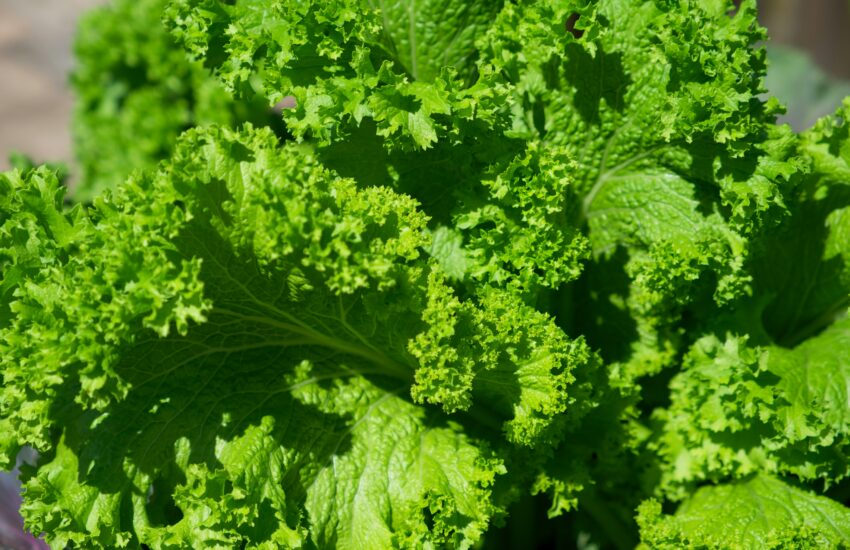Kale, a leafy green vegetable belonging to the Brassica oleracea species, is renowned for its exceptional nutritional profile and numerous health benefits. Packed with essential vitamins, minerals, and antioxidants, kale has gained widespread popularity as a superfood. In this comprehensive exploration, we will delve into the various health benefits of kale, examining its impact on overall well-being, disease prevention, and specific bodily systems. Mohit Tandon from Houston suggested Health Benefits of Kale.

Introduction to Kale
Kale, a member of the cruciferous vegetable family, has been cultivated for centuries and has a rich history of culinary and medicinal use. Known for its robust flavor and hearty texture, kale comes in various forms, including curly kale, lacinato (or dinosaur) kale, and red kale. Its versatility in the kitchen, coupled with its impressive nutrient content, has contributed to its rise as a nutritional powerhouse.
Nutritional Composition of Kale
- Vitamins and Minerals:
- Kale is an excellent source of vitamins A, C, and K. These vitamins play crucial roles in maintaining vision, immune function, and blood clotting. – Mohit Tandon Houston
- Rich in minerals such as calcium, potassium, and manganese, kale supports bone health, regulates blood pressure, and aids in various metabolic processes.
- Antioxidants:
- Loaded with antioxidants like beta-carotene, quercetin, and kaempferol, kale helps combat oxidative stress and inflammation in the body.
- Antioxidants neutralize free radicals, reducing the risk of chronic diseases and supporting overall cellular health.
- Fiber:
- An excellent source of dietary fiber, kale promotes digestive health by preventing constipation and supporting a healthy gut microbiome.
- Fiber also contributes to weight management by promoting a feeling of fullness and stabilizing blood sugar levels. – Mohit Tandon Houston
Disease Prevention
- Cardiovascular Health:
- Kale’s high content of potassium, fiber, and antioxidants contributes to cardiovascular health by regulating blood pressure, reducing cholesterol levels, and preventing oxidative damage to blood vessels.
- Studies suggest that a diet rich in leafy greens like kale may lower the risk of heart disease.
- Cancer Prevention:
- The presence of glucosinolates in kale has been linked to a reduced risk of certain cancers, including colorectal, breast, and prostate cancers. – Mohit Tandon Houston
- Antioxidants in kale help protect cells from DNA damage and inhibit the growth of cancerous cells.
- Anti-Inflammatory Properties:
- Kale contains compounds with anti-inflammatory properties, such as quercetin and kaempferol, which may help alleviate chronic inflammation associated with various diseases, including arthritis and autoimmune disorders.

Metabolic Health
- Weight Management:
- The combination of low calorie and high fiber content in kale makes it an excellent food for weight management. Fiber promotes satiety, reducing overall calorie intake.
- Kale’s nutrients support metabolic processes, and its low energy density makes it a nutrient-dense option for those seeking weight loss.
- Blood Sugar Regulation:
- The fiber and antioxidants in kale contribute to stabilizing blood sugar levels, reducing the risk of type 2 diabetes. – Mohit Tandon Houston
- Studies suggest that diets rich in leafy greens may improve insulin sensitivity and lower the risk of developing diabetes.
Bone Health
- Calcium and Vitamin K:
- Kale is a rich source of calcium, crucial for maintaining bone health and preventing osteoporosis.
- Vitamin K, abundant in kale, plays a vital role in bone mineralization and the regulation of calcium in the body.
- Magnesium:
- The magnesium content in kale supports bone density and helps prevent conditions such as osteoporosis.
Skin and Vision
- Skin Health:
- The combination of vitamins A and C, along with antioxidants, supports skin health by promoting collagen production and protecting against UV damage.
- Kale’s anti-inflammatory properties may also benefit skin conditions such as acne and eczema.
- Eye Health:
- The presence of lutein and zeaxanthin, antioxidants found in kale, contributes to eye health by protecting against age-related macular degeneration and cataracts.
Incorporating Kale into the Diet
- Cooking Methods:
- While kale is often consumed raw in salads, it can also be sautéed, steamed, or blended into smoothies.
- Cooking methods can impact the bioavailability of certain nutrients, and a combination of raw and cooked kale can provide a diverse range of benefits.
- Recipes:
- Explore various recipes that incorporate kale, such as kale chips, smoothies, soups, and stir-fries, to make it a delicious and versatile addition to your meals.
Considerations and Precautions
- Oxalates:
- Kale contains oxalates, compounds that can interfere with calcium absorption and may contribute to kidney stone formation. Individuals with a history of kidney stones should moderate their intake of high-oxalate foods. – Mohit Tandon Houston
- Thyroid Function:
- Accordingly Mohit Tandon, While kale is a nutritious cruciferous vegetable, its high iodine content may affect individuals with thyroid conditions. Cooking kale can help reduce its impact on thyroid function.
Conclusion
In conclusion, kale stands out as a nutritional powerhouse with a myriad of health benefits. Its rich combination of vitamins, minerals, antioxidants, and fiber contributes to disease prevention, metabolic health, bone strength, and overall well-being. Incorporating kale into a balanced and diverse diet can be a delicious and effective way to support optimal health. However, as with any food, moderation and consideration of individual health conditions are key to maximizing its benefits. Embracing kale as part of a wholesome diet is a flavorful and nourishing choice for those seeking to enhance their nutritional intake and promote long-term health.
